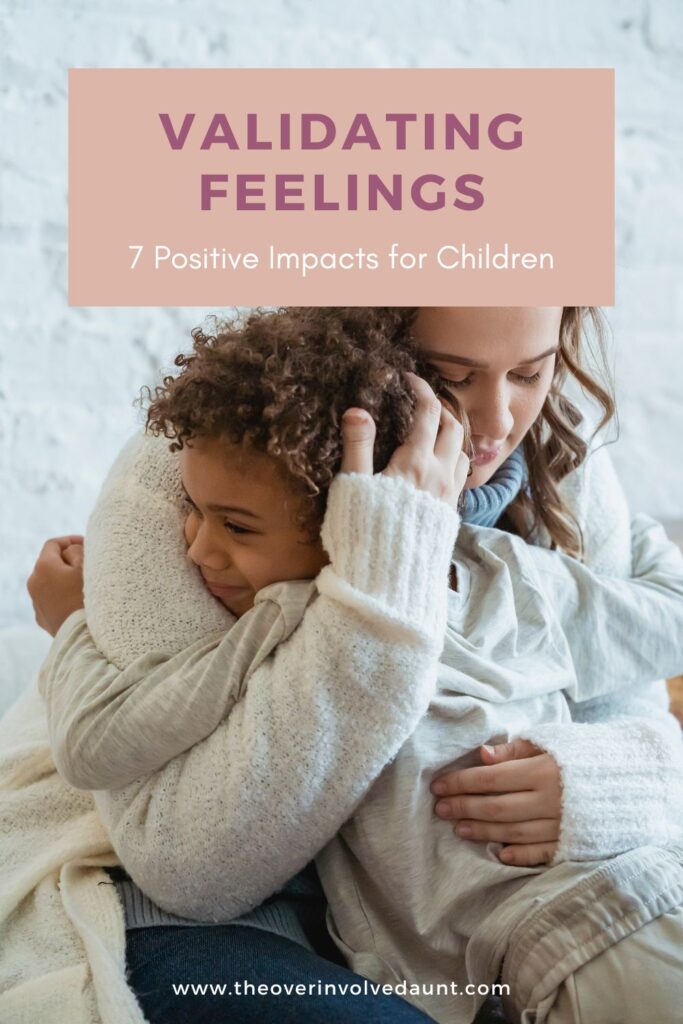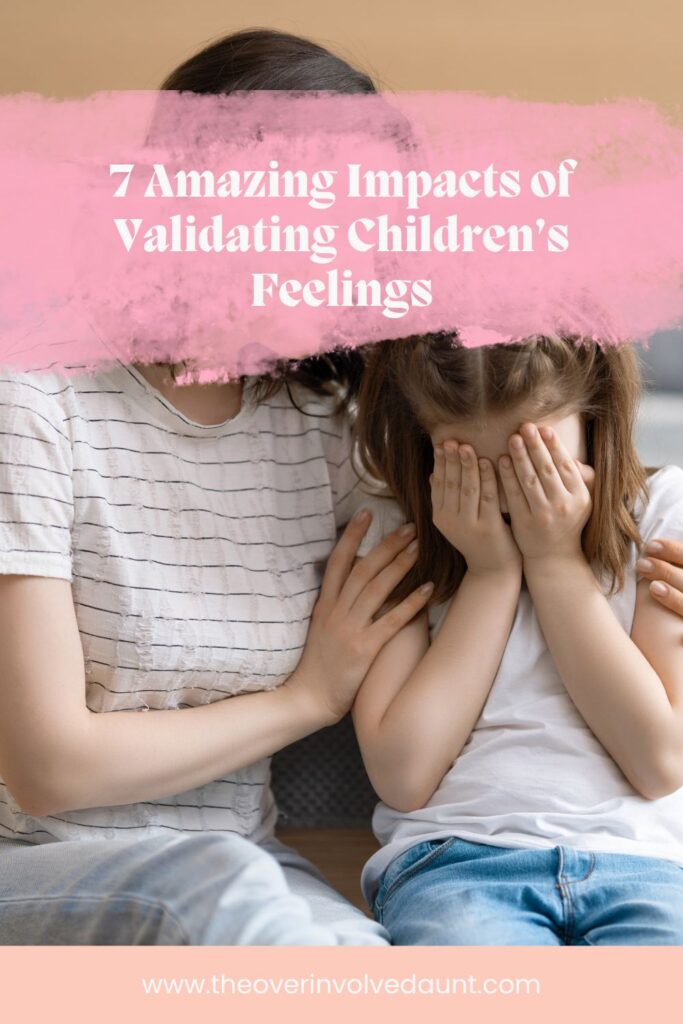7 Amazing Impacts of Validating Children’s Feelings on Their Well-Being
Validating children’s feelings is one of the most important things we can do for so many reasons. Even as adults, it feels nice to have someone support and confirm our feelings. Children are no different and I would argue it’s even more important to validate them.
Children’s brains are still developing. There are a lot of hormones involved as well. It’s so easy to get caught up in busy schedules and checking things off the to-do list. We often forget that children aren’t mini adults. They’re still trying to navigate the world and understand why picking up the toys is so important or why they need to wear pajamas (p.s. pajamas can be optional).

How to Validate Feelings
Validating children’s feelings doesn’t have to be a long drawn out conversation. Simply expressing and showing that you understand their frustrations is all it takes. Think about when you’re sharing something important or difficult with a friend or family member. How would you like them to respond? Apply those same expectations to yourself when talking with children.
Active listening
Listening is one of the most important things that we can do. It’s so easy to try and form what we want to say in our head while children are talking. But making eye contact and nodding your head in understanding, while really listening to what they’re saying, helps them to see that you care. By using active listening, it’s easier for adults to understand how or why children are struggling.
Eliminate Distractions
We’re busy and distractions are everywhere! It’s easy to be distracted by other things. But when a child is struggling with their emotions, it’s important to give them all of our attention. Again, how do you feel when you’re trying to have an important conversation with someone and they’re constantly checking their phone or doing other things while they’re listening?
Giving children our full attention helps them feel understood, important, and valued. Therefore, it can help them to calm down faster allowing us to resolve, or help resolve the situation quicker.
Express Understanding
After a child has expressed how they’re feeling, it’s important to use words that show them you care and understand why they’re mad, sad, frustrated, etc. Here are a few simple phrases to try:
- It can be really frustrating when someone ruins your creation.
- You were having fun and it’s hard to stop to clean up.
- It understand. You’re disappointed because grandma couldn’t visit today.
Showing that you understand why children are upset will build relationships.
Impact of Validating Children’s Feelings
Coping Skills/Emotional Regulation
Validation helps children learn to regulate their emotions. When their feelings are acknowledged, they are more likely to develop healthy coping mechanisms. The more we validate feelings, the easier it is for children to recognize them in the moment and cope with them.
Emotional Intelligence
Validating a child’s feelings helps in the healthy development of their emotional intelligence. It allows them to recognize, understand, and manage their emotions effectively. Validating a child’s feelings contributes to their emotional resilience as well. It teaches them that it is okay to experience a range of emotions and that they can navigate through challenges with support.
Building Relationships
Validating feelings strengthens the bond between children and their caregivers. It creates a positive and supportive environment that fosters a strong connection between the child and caregiver. As children feel more secure in expressing their feelings they will do it without your guidance.
Conflict Management
When children feel validated, it sets the stage for problem-solving. It allows them to explore solutions to their concerns with the support and guidance of caregivers. Again, as children become more comfortable sharing their emotions with you, they will begin to express them with friends or peers.
Building Trust
Validating a child’s feelings creates a foundation of trust between the child and the caregiver. When children feel heard and understood, they are more likely to trust their caregivers. Trust means they will share their thoughts and emotions. Trust will also shorten or eliminate frequent tantrums.
Self-esteem
Validation contributes to a positive self-image. Acknowledging feelings reinforces a child’s sense of self-worth and boosts their self-esteem. They learn that their feelings are ‘normal’ and therefore should not feel shame for having them.
Communication
Validating feelings encourages open and effective communication. Children who feel validated are more likely to express themselves and communicate their needs, thoughts, and concerns openly. Being able to communicate their feelings with you can give them to confidence to express their feelings to teachers, peers, and other family members.
I hope this has helped you gain a little understanding into why validating children’s feelings is so important. Learn to navigate big emotions with this post.


One Comment
Comments are closed.